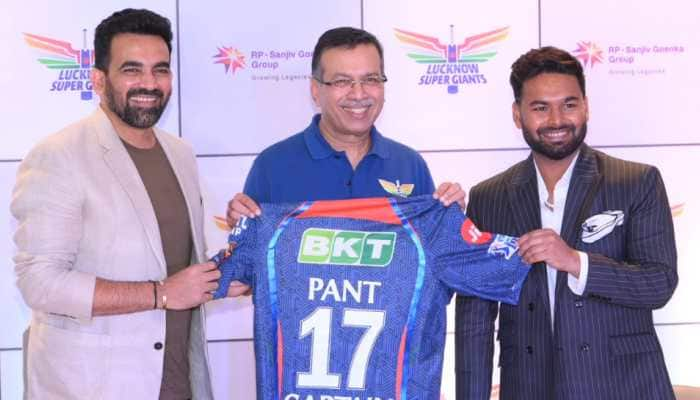War against corruption in India is endless, meaningless finger-pointing, we need to do better
Corruption in India is sophisticated. It doesn't happen Bollywood-style. We need a better method of dealing with allegations.
Trending Photos
)
Last week saw two media stories that raised for me the question of how we need to cover corruption in Indian public life. We talk so much about corruption that it becomes a social problem in itself. Political mudslinging often passes for factual detail and the noise of social media only makes matters worse. How I wish we had a real middle ground on examining corruption! What I propose to do now is to just sketch out the bare contours of what could be a toolkit in examining corruption -- because it seems in the absence of such a toolkit, all we see are political allegations and counter-allegations.
Let us look at two stories from media entities widely associated with a pro and anti-government tilt in the current political situation. Online news portal The Wire reported that power minister Piyush Goyal, before he assumed office as power minister in Prime Minister Narendra Modi's cabinet, was involved in personal dealings that resulted in a high-value sale of a company he and his family controlled to the Piramal group but made no disclosures. It also reported about a company he was associated with being in a huge loan default, to which Goyal's party, the BJP, responded that the association was long ago and had no recent connection.
The headline read: "In Selling Firm to Piramal Group as Minister, Piyush Goyal Pushes Ethical Boundaries." The Piramal group later clarified that it had no interest in the power sector and the sale of the company in question was done by fair valuation certified by a chartered accountant.
In the other instance, Republic TV reported that Divya Spandana, a successful actor-turned-politician who is now leading the Congress party's social media initiatives under party president Rahul Gandhi, had to defend herself after a story suggested that fugitive liquor baron Vijay Mallya paid for her holiday in Hong Kong in 2010 -- before the time she entered politics.
Now here is the big question: If a successful chartered accountant or a successful actor enter politics, how should we measure their conduct before, during and after their tenures as officials in the government or even the party? Are they not entitled to other careers or professional means of livelihood?
The truth is that politicians are not paid for by taxpayer money except and unless they hold suitable offices.
But it is equally true that dubious money has ways of secretly supping with political figures.
Goyal has not personally clarified so far his position on the valuation story, but Divya Spandana said she had been a brand ambassador for Royal Challengers Bangalore, the cricket team owned by Mallya, who also happened to be her father's friend. She has not detailed the nature of the engagement and the compensations involved.
It is perfectly legitimate for a celebrity to endorse a brand and it is equally legitimate for a minister to have a previous life as a chartered accountant or a parallel life as an investor.
However, the merits or demerits of these cases apart, we need to establish a middle ground on disclosures and analysis in reports involving public figures.
Here is the problem. Only the naive would believe corruption happens Bollywood-style, where cash bundles are exchanged or direct dealings take place between public figures and private entities. Often, associations and relationships are in a grey area where a fuzzy audit trail is as possible as a misleading allegation.
We do have three prominent Indian political figures, Lalu Prasad Yadav, Om Prakash Chautala and VK Sashikala serving jail sentences after being convicted on corruption charges but there are sophisticated forms of business-politics nexus that rely on relationships that are perfectly legal or middlemen who virtually serve as "escrow" accounts that act as neutral grounds between parties.
The sad part is that it is difficult for ordinary citizens to get clarity on such issues when media entities or political parties go hammer and tongs at each other with no clarity in sight. The irony is that the same party when it is in power uses one rule to slam a rival and another rule when it is itself in power.
I wish voluntary organisations that fight corruption lay down ground rules for both media and political parties so that we know how to measure digressions from best practices. Here are a few things they can do:
* Set up a panel of eminent citizens (think of respectable social workers, academicians, retired civil servants or retired judges), who can give ratings for anti-corruption stories, and for statements by political parties or public figures, just like film critics assign review ratings or credit rating agencies give ratings for corporate loans.
* Create an independent panel of financial experts including chartered accountants for their "audit of the auditors" for public consumption of a "second opinion" -- because hired accountants are only middlemen.
* Set up a "conflict of interest" framework where analysts can give an independent view on whether or not a case involves a potential conflict of interest that required disclosures or recusals.
In the absence of such a framework, I think corruption stories have the air of a childish game of hide-and-seek in which the media loses its sense of proportion and the public its sense of perception.
P.S. The good news after last week's stories is that public figures in India have to be increasingly careful about how they make their money or who they are friends with. Public scrutiny has reached new levels.
(Madhavan Narayanan is a senior journalist who has covered politics, diplomacy, business, technology and other subjects in a long career that has spanned organisations including Reuters, Business Standard and Hindustan Times. He is currently an independent columnist, editor and commentator. He is listed among the top 200 Indian influencers on Twitter. He tweets as @madversity)
(Disclaimer: The opinions expressed above are the personal views of the author and do not reflect the views of ZMCL.)
Stay informed on all the latest news, real-time breaking news updates, and follow all the important headlines in india news and world News on Zee News.
Live Tv







)
)
)
)
)
)
)
)
)
)
